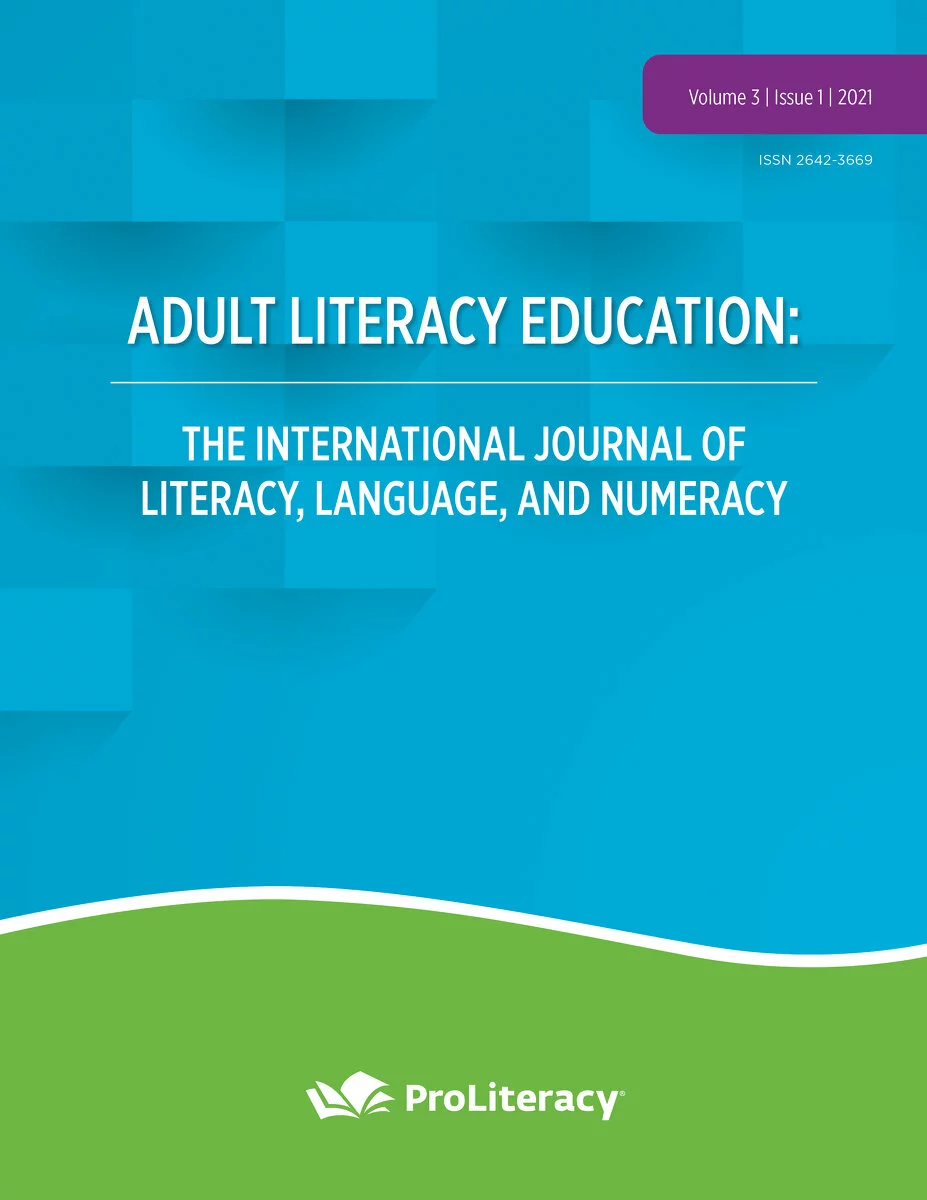Journal
This issue discusses several topics related to adult literacy education. It emphasizes the importance of informal learning in the workplace, the role of strong and weak social ties, and the impact of a program called Content Integrated Language Instruction for Adults (CILIA) on vocabulary growth and content comprehension.
It also explores the integration of technology in adult education and addresses concerns about evaluating student outcomes. The issue touches on systemic issues, equity, and the need for institutional change in adult education. Overall, it offers insights, research findings, and solutions related to adult literacy education.
This issue of the journal includes:
Research Articles
Author(s): Maurice Taylor and David Trumpower – University of Ottawa
Description: The article provides insights into the multidimensional nature of adult literacy education outcomes and emphasizes the need to consider a wide range of factors when evaluating the impact of literacy programs on adult learners.
Author(s): Angela U. Nwude and Anna Zajicek – University of Arkansas
Description: The article explores the effects of workplace literacy programs on the social network structure of Somali refugee workers in the United States. The study focuses on 18 participants enrolled in a workplace literacy program, which offered classes in English as a second language, high school equivalency, and citizenship.
Author(s): Aydin Yücesan Durgunoglu – University of Minnesota Duluth; Anurag Sagar – IHM Center for Literacy; Katherine E. Fagan – Center for Literacy (retired); Amy Brueck – Sanata Dharma University
Description: The article discusses a program called Content Integrated Language Instruction for Adults (CILIA) that effectively improves vocabulary and comprehension skills of adult English Language learners through integrated content instruction.
Report from the Field
Author(s): Jennifer Kobrin – University of Pennsylvania; Peta-Gaye Nicole Bullock – PowerCorpsPHL; Jillian Gierke – Garces Foundation; Charlie Heil – HIAS PA
Description: The article discusses the use of technology in adult education and highlights a professional development initiative focused on technology adoption. The initiative involved three sprints and peer collaboration, aiming to integrate technology into teaching practices effectively.
Forum: Serving Learners with Barriers
Author(s): Erik Jacobson – Montclair State University
Description: This paper examines the term “hard to serve” in the context of adult education programs and highlights its various problematic interpretations, emphasizing the need for equitable and inclusive approaches to education.
Author(s): Joni Schwartz – City University of New York, LaGuardia Community College
Description: The article criticizes the practice of labeling adult learners as “hard-to-serve” and highlights systemic issues that contribute to educational barriers. It emphasizes the importance of person-centered language and challenges the notion that non-English speakers are harder to serve.
Author(s): Jeff Zacharakis – Kansas State University
Description: The author reflects on the terminology used to describe adults in need of education services, emphasizing the dedication and effectiveness of adult education centers despite limitations imposed by policies and funding.
Resource Review
Author(s): Charles A. MacArthur – University of Delaware
Description: The article discusses the challenges of teaching writing to adult English language learners (ELLs) and recommends practical instructional strategies for improving their writing skills in academic and workplace settings.
Author(s): Margaret Becker Patterson – Research Allies for Lifelong Learning
Description: According to Patterson, “Learning in Adulthood: A Comprehensive Guide” is a 600-page book that provides an overview of adult learning, theories, and approaches, but it lacks engaging visuals and may not be the most current resource.
Research Digest
Author(s): Elizabeth A. Roumell – Texas A&M University
Description: The essay argues for a re-imagining of adult and workforce education policy, emphasizing the need for equity, inclusion, digital literacy, professional development, and equal income.
Technology Solutions for Adult Basic Skills Challenges
Author(s): Anthony Burik – Outreach and Technical Assistance Network
Description: The article highlights the potential of technology to enhance the goal-setting process and improve student outcomes in adult education programs. It emphasizes the importance of goal setting and its connection to student persistence.
